Education
Sanwo-Olu cancels appointment process for ninth LASU VC

Lagos State Governor, Babajide Sanwo-Olu, has cancelled the ongoing process for the appointment of ninth vice-chancellor of the Lagos State University (LASU).
The governor, who is visitor to the university, also ordered a fresh process that would terminate in 45 days.
A statement by the governor’s Chief Press Secretary, Gboyega Akosile, on Friday stated that the “decision on the cancellation came after a thorough investigation and stakeholders’ engagement, which were necessitated by various petitions against the selection process”.
The statement added, “Governor Sanwo-Olu was inundated with petitions arising from the selection process of the vice-chancellor by the governing council. After a thorough evaluation and investigation of the various complaints, Mr. Governor, in his capacity as the visitor to the university ordered the cancellation of the process.
“The outgoing Vice-Chancellor, Professor Olanrewaju Fagbohun, has also been directed to convene an emergency Senate meeting for the purpose of appointing one of the deputy vice chancellor, who is not a candidate in the cancelled selection process as acting vice chancellor from Monday, January 11, 2021, when the tenure of the incumbent Vice-Chancellor, Professor Fagbohun, expires.
“The governor further directed that the Senate should select among its members, a protem chairman to superintend the meeting and conduct of the election of acting vice chancellor.”
A joint selection committee of the Senate and Council was set up by the university to interview candidates for the position.
The committee had submitted names of three candidates it considered the best for the job for onward transmission to the visitor of the university for the final selection of the overall best candidate.
But the LASU chapter of the Academic Staff Union of Universities kicked against the selection process in a letter dated January 1, 2021, and signed by its Secretary, Tony Dansu, and Assistant Secretary, Adeolu Oyekan. The union alleged that some of the candidates lacked the requisite qualifications to succeed the incumbent VC.
“It would appear that the selection committee was unable to abide by the conditions stipulated in the advertisement for the position of vice chancellor, as candidates who did not meet some of the clearly stated criteria (i.e., possessing 10 years post-professorial experience and having supervised PhD theses), scaled the shortlisting stage and even made it to the three-person list reportedly submitted to the Visitor,” the union stated.
As advertised by the committee for the post, a successful applicant must be a professor of at least 10 years, with a track record of academic excellence of local and international repute including supervision and mentoring of postgraduate students.
More than 18 professors from about 10 universities applied for the job.
One of the selected three candidates was said not to be qualified because his entry qualification to the university was the Fellowship of the Nigerian Postgraduate Medical College and not Ph.D.
Another candidate was said not to be a professor of at least 10 years as stated in the advertisement for the job.
Education
FG approves NYSC mobilisation for all full-time HND graduates
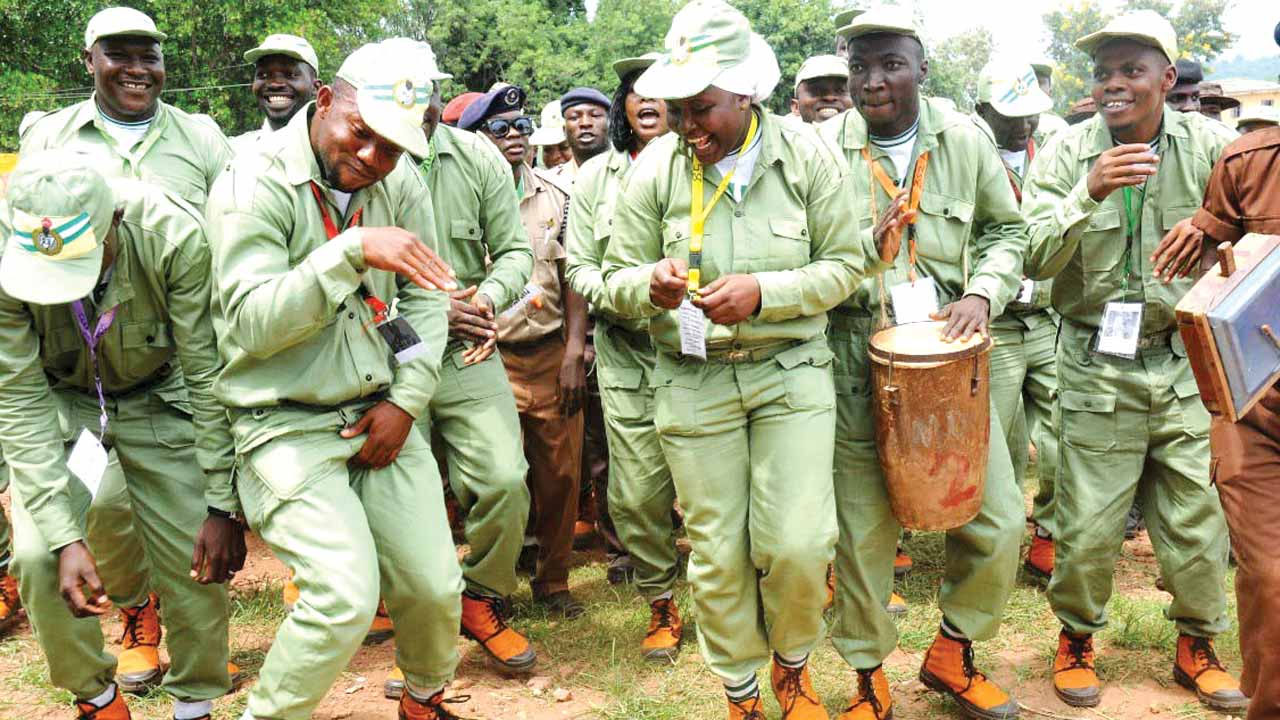
FG approves NYSC mobilisation for all full-time HND graduates
The Federal Government has approved the mobilisation of all full-time Higher National Diploma (HND) graduates for the National Youth Service Corps (NYSC), ending years of exclusion from the scheme.
Minister of Education, Dr. Tunji Alausa, announced the decision on Thursday in Abuja, stating that only graduates of full-time HND programs would be eligible for mobilisation. The policy shift follows consultations with the Director-General of the NYSC and is aimed at promoting fairness in the education sector.
“The Federal Ministry of Education remains committed to equity, fairness, and inclusivity in Nigeria’s education system,” Alausa said in a statement released by the ministry’s Director of Press and Public Relations, Folasade Boriowo.
READ ALSO:
- More trouble brews in Rivers as Ijaw congress considers self-determination option
- Obi, Bala Mohammed ticket can defeat Tinubu – South-South Alliance
- Another truck explodes in Abuja, 10 killed, 30 injured
To ensure smooth implementation, the National Board for Technical Education (NBTE) has been directed to compile data on eligible HND graduates. A circular has also been issued to polytechnic rectors, instructing them to upload the necessary graduate records to a newly established HND admission portal, which will serve as the official database for NYSC mobilisation.
However, the minister clarified that part-time HND graduates remain ineligible for the scheme.
“This decision applies strictly to those who completed a full-time HND programme,” Alausa reiterated.
He urged all qualified graduates to take advantage of the opportunity and begin their mobilisation process immediately.
The move is expected to address long-standing concerns among polytechnic graduates and enhance their participation in national development through the NYSC scheme.
FG approves NYSC mobilisation for all full-time HND graduates
Education
Romanian university offers fully funded scholarships to non-EU and non-EEA students for 2025

Romanian university offers fully funded scholarships to non-EU and non-EEA students for 2025
Romanian university offers fully funded scholarships to non-EU and non-EEA students for 2025
Education
New Zealand university offers up to $10,000 scholarship for international students

New Zealand university offers up to $10,000 scholarship for international students
Victoria University of Wellington in New Zealand, is offering the Tongarewa International Scholarship, which provides financial assistance of up to $10,000 to international students for their first year of study.
The scholarship seeks to support students in covering part of their tuition fees at the university.
The Tongarewa International Scholarship is available to international students starting their studies at Victoria University of Wellington in Trimester 2 or Trimester 3 of 2025.
This partial fee-based scholarship is open to both undergraduate and postgraduate students, offering a maximum award of $10,000.
“This is a partial fee-based scholarship that will go towards tuition fees for one year of study. It is designed for new international students, who are entering their first year of undergraduate or postgraduate studies at Victoria University of Wellington,” the institution informs.
“Scholarships are awarded competitively on the basis of academic excellence”
Eligibility criteria for the scholarship
To be eligible for the Tongarewa International Scholarship, applicants must:
- Be new international students
- Students must also hold a Conditional or Unconditional Offer of Place for an eligible program at Victoria University of Wellington
- New students to Victoria University of Wellington
- Selected by the scholarship award panel (upon scholarship application)
READ ALSO:
- China hosts Iran, Russia for nuclear talks
- Tinubu backs Obasa to remain Lagos speaker, ends assembly crisis
- Court bans viewing of controversial film, ‘Gang of Lagos’
Applicants are not eligible for this scholarship if they:
- Completed their secondary education at a New Zealand school;
- Completed the English for Academic Purposes (EAP) or the Victoria University of Wellington Foundation Studies programme;
- Are a Study Abroad or Exchange student or a Twinning student from one of the institution’s overseas partner universities;
- Are in their second trimester or year of study in the same degree programme (returning students) at Victoria University of Wellington
Application process
Students interested in applying for the scholarship must submit an application demonstrating academic achievement and leadership potential.
Scholarship requirements
The following documentation must be provided as part of the online scholarship application:
- A personal statement of up to 500 words outlining why the applicant wishes to study at Victoria University of Wellington, their academic goals and why they merit the scholarship
- Applicants should also include any leadership positions and details of their involvement in their school or community
According to the institution, “this is a partial fee-based scholarship which is awarded competitively based on academic excellence and the student’s personal statement. A panel comprising appropriate Wellington University International staff will review the applications and award the scholarships.”
Details further inform that the amount of the stipend will be awarded as either $2,500; $5,000; $7,500 or $10,000.
The scholarship amount, according to the institution, will be credited to students’ accounts two weeks after the programme begins. It cannot be paid out before this date.
Once the scholarship is awarded, the decision is final and cannot be appealed.
“Should the recipient withdraw from Victoria University of Wellington during the tenure of this scholarship or fail to achieve satisfactory progress, partial repayment of the Scholarship will normally be expected. Recipients must advise the Scholarships Office if they intend to withdraw,” the institution states.
Important deadlines
The deadline to apply for the scholarship is May 1st, 2025 for Trimester 2 and 1 August 2025 for Trimester 3. Applications must be submitted on the respective deadline dates.
For more details or to apply, students can visit the Victoria University of Wellington website.
New Zealand university offers up to $10,000 scholarship for international students
-

 metro2 days ago
metro2 days ago‘We’re not hiring,’ NNPC denies viral recruitment adverts
-

 metro1 day ago
metro1 day agoNatasha: Court blocks recall attempt, stops INEC
-
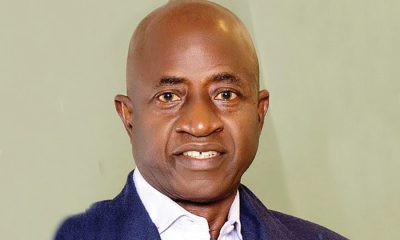
 Sports1 day ago
Sports1 day agoOdegbami speaks on Osimhen breaking his 44-year goals record
-

 metro2 days ago
metro2 days agoMore trouble brews in Rivers as Ijaw congress considers self-determination option
-

 Entertainment1 day ago
Entertainment1 day agoI didn’t snatch Asake’s mother from her husband -Musibau Alani
-

 Sports2 days ago
Sports2 days ago2026 WCQ: Super Eagles move up to third place with 2-0 win in Rwanda
-

 metro1 day ago
metro1 day agoBoko Haram attacks military base in Adamawa
-

 Sports2 days ago
Sports2 days agoOsimhen breaks Odegbami’s Eagles goal record

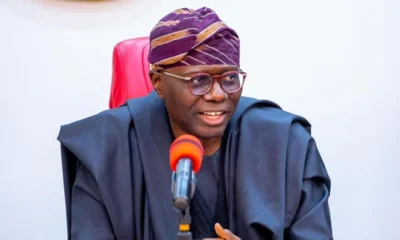





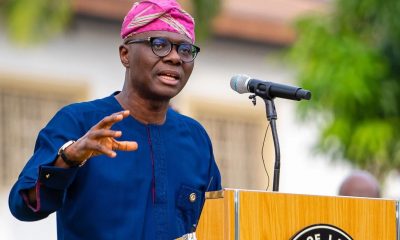



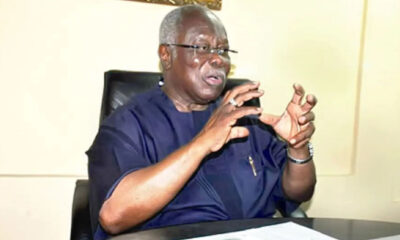


You must be logged in to post a comment Login